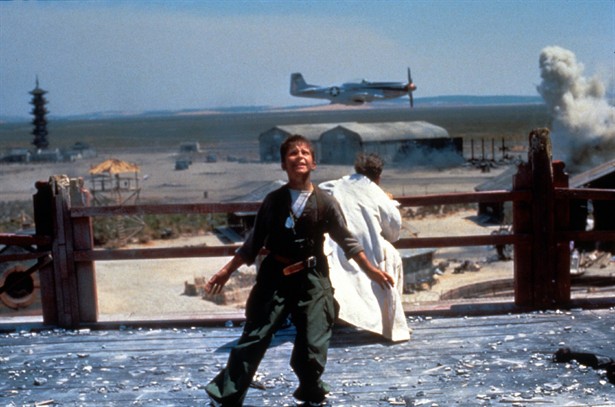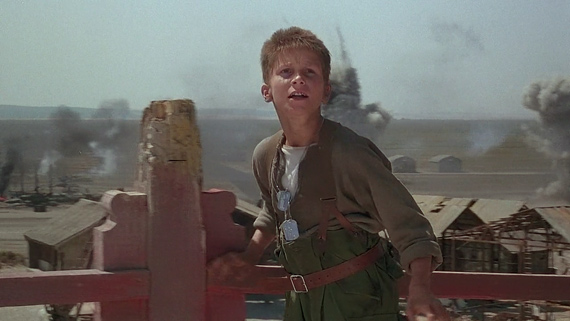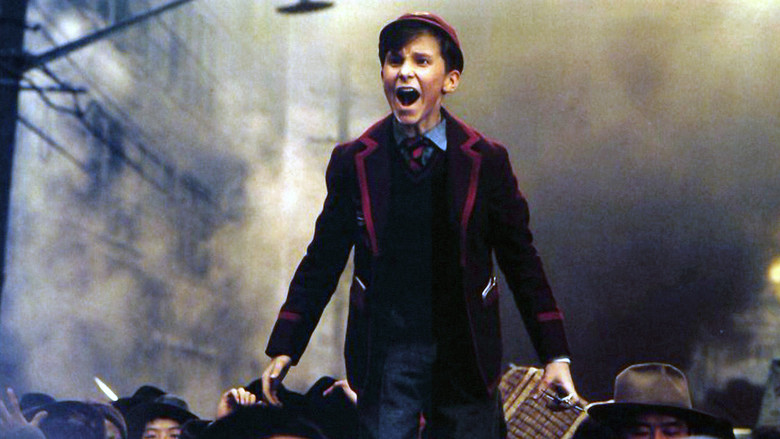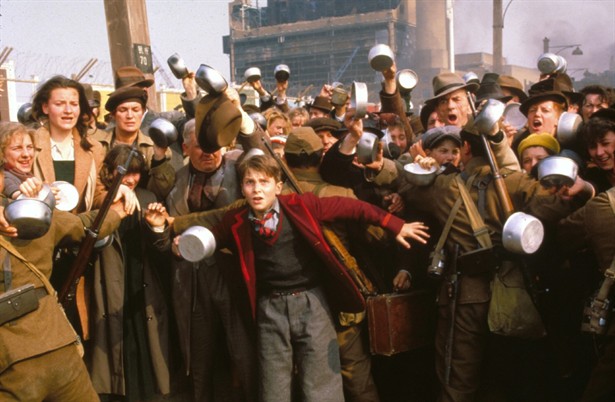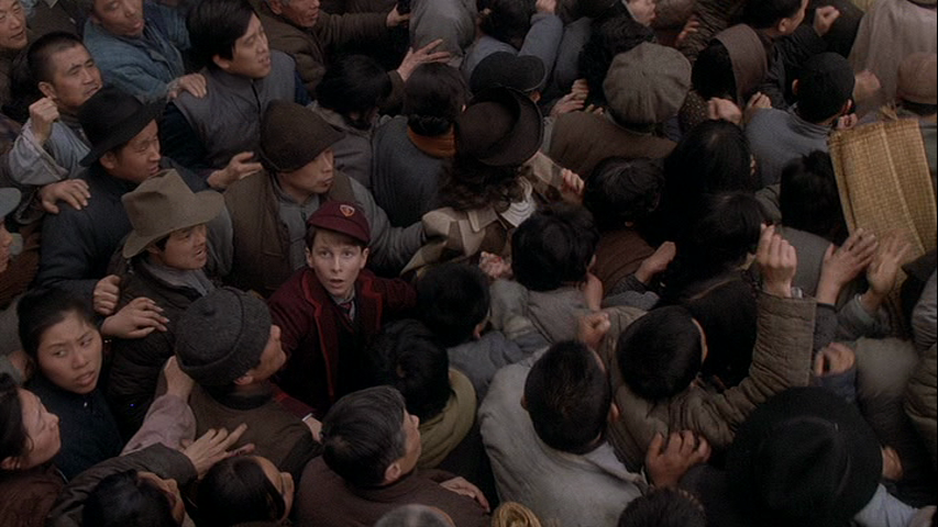|
How entertaining? ★★★★★
Thought provoking? ★★☆☆☆ 14 December 2007
This article is a review of EMPIRE OF THE SUN. |
"I can't remember what my parents look like," Jim
Based on J.G. Ballard’s semi-biographical book, and directed by the legendary Steven Spielberg, this had a large impact on my childhood. Along with RAIDERS OF THE LOST ARK, this is still one of my favourite films from the Spielberg canon. Now twenty years on from its release it is, I believe, one of his most underrated films.
Starting in 1941 Shanghai and finishing in 1945, this is the story of James Graham (Christian Bale), who has spent his entire life in the Far East among wealthy British ex-pats who make a living there. He is a spoilt only child, precocious, and full of energy and joie de vivre. China and Japan are in undeclared war. Japanese soldiers are dug in outside Shanghai, where the British live. According to the prologue Japan is waiting for Pearl Harbour before it makes its move.
Opening on coffins floating in the sea, and then cutting to a church with choral music, we are introduced to James aka Jamie singing solo parts with an amazing voice. The Chinese servants to their English masters wait on the pews until the singing is complete. One of the major themes of EMPIRE OF THE SUN is contrasts: rich and poor, colours - Jamie’s red school uniform against backgrounds of greys and greens, east and west, child and adult, servants and masters, oppressed and oppressors, sating and hunger, and denial and acceptance. The British aristocrats seem to be in denial about the impending conflict about to engulf their paradise of Shanghai mansions and fancy-dress parties. The foreboding hanging in the air is almost claustrophobic.
|
Amazon UK
|
Amazon USA
|
Jamie talks to his mother one night about a dream of god. Dream-like images become a motif of the film – slow-motion, beautiful light and stunning choreography. A dream-like perspective is one way a child perhaps can process hardship. And hardship is about to befall Jamie. The Japanese attack Shanghai and he is separated from his parents in the struggle to escape. Will he ever see them again? That is one of the dramatic questions posed by the film. He is now on his own with the world at war. The idea of abandonment and separation anxiety is cleverly portrayed. Jamie is not even a teenager yet. As with E.T. Spielberg shoots from a child’s perspective.
Christian Bale is one of the best actors working today. His dedication, ability, charisma and presence mark him out as professional at the top of his field. He is currently wowing audiences as Batman in BATMAN BEGINS, as well as THE PRESTIGE, HARSH TIMES and THE MACHINIST to name a few, but he made his mark straightaway as the centrifugal force propelling this film, a performance that most adult actors could not pull off. Jamie is believable as a curious, perceptive, resourceful, bright, amiable, well mannered and boisterous child, who spends almost half the film in Soochow Creek Internment Camp, where British and Americans are held by the Japanese army.
An hour into the film it jumps to 1945. He has a haircut like James Dean and wears a leather jacket. He is now known as Jim, symbolic of a boy on the cusp of manhood. Without parents he has found two surrogate fathers, British Dr. Rawlins (Nigel Havers) and American Basie (John Malcovich). He learns much from each – academic lessons from Dr. Rawlins and practical ones from Basie. The theme of contrast is particularly highlighted in the differences between these two men: British aristocratic glamour vs. the American swagger glamour. Neither asks him to choose but he is drawn for companionship to Basie’s slippery survivalist charm. There are also interesting criticisms levelled at both men. The Brit is teaching Jim to conjugate Latin verbs – oblivious to the redundancy, but perhaps grasping for normality, of a dead language being learnt in a prisoner of war camp; while Basie is all for himself, thought with a conscience deep down.
Jim’s growth is conveyed full of event and excitement, though in the context of profound tragedy. A criticism levelled at the film is that the harshness of war is tempered by an almost boys’ own adventure. I think those who believe that are missing the point. EMPIRE OF THE SUN is perhaps a war film for children to understand the horrors, but not to be too unpalatable. When Jim is asked by Basie to protect his stuff, he is unable and heartbreakingly replies, “They were bigger than me.” Bullying as a metaphor for war is an adroit connection to make for children. Jim is arguably like Dickens’ OLIVER TWIST – a boy with a survival instinct, not willing to give up, and benefitting from much luck in meeting the people who can and will help him.
EMPIRE OF THE SUN is a fantastic film. John Williams creates another sublime and apt musical score, Allen Daviau delivers lush cinematography, acclaimed playwright Tom Stoppard adapts, and Spielberg knows spectacle, emotion and story in an almost unparalleled way when he is on form. There are so many breathtaking images: a fighter plane flying in slo-mo while the pilot acknowledges Jim, sunlight reflected in a stream with the light dancing between fingers, a rising shot suddenly revealing a company of soldiers, and a suitcase being thrown into a river at twilight.
EMPIRE OF THE SUN is not a simplistic portrait of war. Jim has much respect for the Japanese. There are issues of identity, humanity and loyalty.
Dr. Rawlins, “Remember, we’re British.”
Jim, “Yes, I’ve never been there.”
We have selected movies below that we think will be of interest to you based on this review.
Using these Amazon affiliated links help us keep Filmaluation free for all film and arts lovers.
Amazon UK
|
|
|
|
|
Amazon USA
|
|
|
|
|


